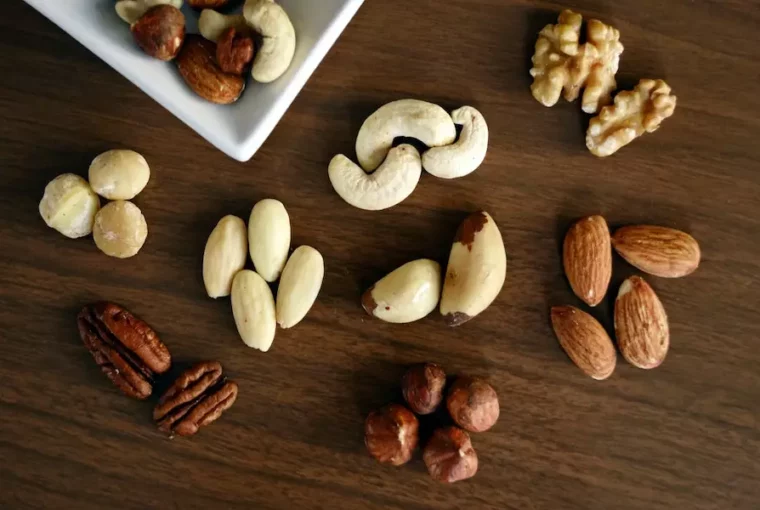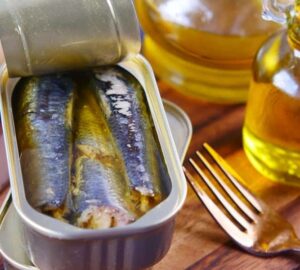Losing weight offers numerous health benefits. It leads to a healthy heart, low cholesterol, and blood sugar levels, regulates diabetes, and lowers the risk of stroke. However, you may cut snacking in a weight loss program, thinking it reduces fats and excessive calories. But the reality is that incorporating healthy snacking into your weight loss program may help you achieve your goals.
Healthy snacks may help reduce your appetite, restraining you from overeating on your next meal. Snacking stabilizes your blood sugar levels, preventing insulin spikes that cause weight gain. With that in mind, here are seven tips for choosing healthy snacks during weight loss:
1. Go For Snacks Rich In Protein
Protein-rich snacks play a key role in weight loss. Proteins help you control your appetite in various ways. For instance, they lower the ghrelin hormone, which is liable for causing hunger. Additionally, they augment the levels of peptide YY, enabling you to feel full for an extended period. Other benefits of protein-rich snacks include:
- Supports a healthy metabolism: During digestion, your body uses calories and utilizes the nutrients in food, a process called the thermic effect of food (TEF). Eating may temporarily enhance your metabolism. However, not all foods have the same thermic effect. Protein is known to have the highest thermic effect.
- Enhances muscle mass and strength: Protein is your muscles’ building block. As you exercise, it repairs the muscles, facilitates muscle growth, and allows you to sustain your muscle mass.
High-protein snacks include nuts, tuna, eggs, cottage cheese, protein bars, etc. But it’s crucial to choose the best protein bar to lose weight by helping your body burn more calories.
2. Consider The Calories
Calories are necessary to support vital body functions like cell operations. Your body obtains calories from food and converts this into energy. It then utilizes this energy instantly or stores it for future use. The number of calories you take may impact your weight—for instance, higher consumption of calories than you burn results in weight gain. Alternatively, you lose weight if you take fewer calories and burn more.
Therefore, when choosing a healthy snack during weight loss, go for those with low calories. You can also count your calorie intake to determine the energy you consume daily.
3. Avoid Processed Snacks
Heavily processed foods have numerous health effects. They contain unhealthy levels of fat, sodium, and sugar. Although these ingredients make foods taste better, excessive consumption may lead to serious health issues like diabetes, heart disease, and high blood pressure.
Processed foods and snacks may also lack nutritional value since ultra-processing strips essential nutrients from snacks. Manufacturers sometimes add fortified minerals, vitamins, and fiber to substitute nutrients lost during processing. But preparing snacks yourself may give you more nutritional benefits.
4. Pick Fiber-Rich Snacks
The major role of fiber in the body is to prevent or alleviate constipation. But fiber may also help you obtain a healthy weight. Snacks with high fiber levels may help you lose weight. They may absorb water in the intestine, slowing the absorption of nutrients and making you satisfied for a long time.
On top of that, fiber reduces your cholesterol and blood sugar levels. It lowers low-density lipoprotein, resulting in low cholesterol levels. Moreover, fiber slows the absorption of sugar, boosting your blood sugar levels.
5. Mind The Portion Size
The role of snacks is to defer hunger but not to substitute a meal. Too much snacking can result in unwanted weight gain due to the excess calories. Also, excessive snacking may reduce your appetite during mealtimes. With this, you may skip meals, increasing the risk of missing essential nutrients.
For those reasons, choose the right snack size to avoid affecting your appetite during main meals. Also, take your snacks some hours before taking your meals.
6. Determine Your Hunger Level
Snacks can sometimes be addictive, and you may be tempted to take them continuously. Compulsive snacking can prompt you to make poor snack decisions. Alternatively, you may not make healthy choices when you’re extremely hungry.
7. Be Mindful When Snacking
Distractions can affect the kind of snacks you pick. For example, watching TV or doing other chores can make you eat any available snack without considering its nutritional content. Furthermore, it makes you eat more than intended. Therefore, take your time when snacking to enjoy and avoid mindless eating.
Conclusion
Incorporating healthy snacking into a weight loss program may seem counterintuitive, but it may help you achieve your goals. Healthy snacks can be an effective tool for weight loss by reducing appetite and stabilizing blood sugar levels. However, it’s important to pick the right snacks. By following the seven tips outlined in this article, such as choosing snacks rich in protein and fiber, avoiding processed snacks, and being mindful of portion sizes and hunger levels, you can make healthy snacking a part of your weight loss journey.




